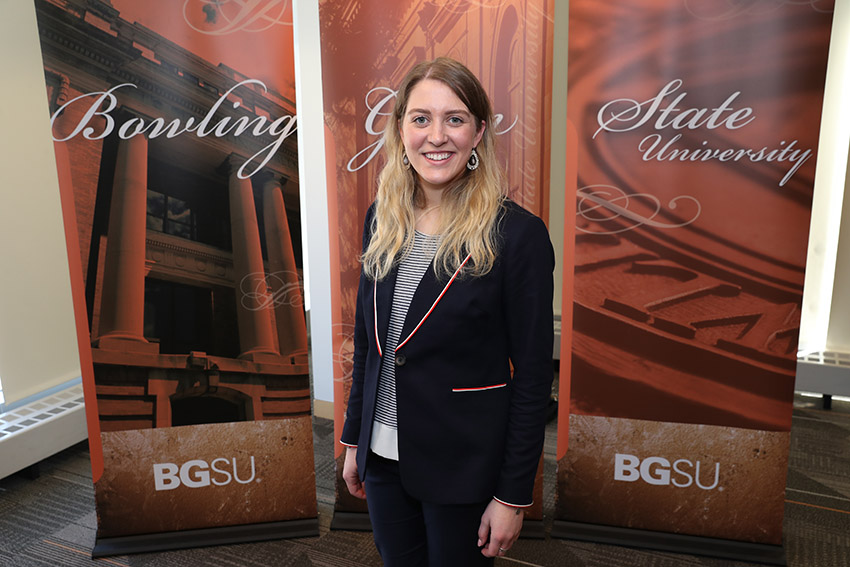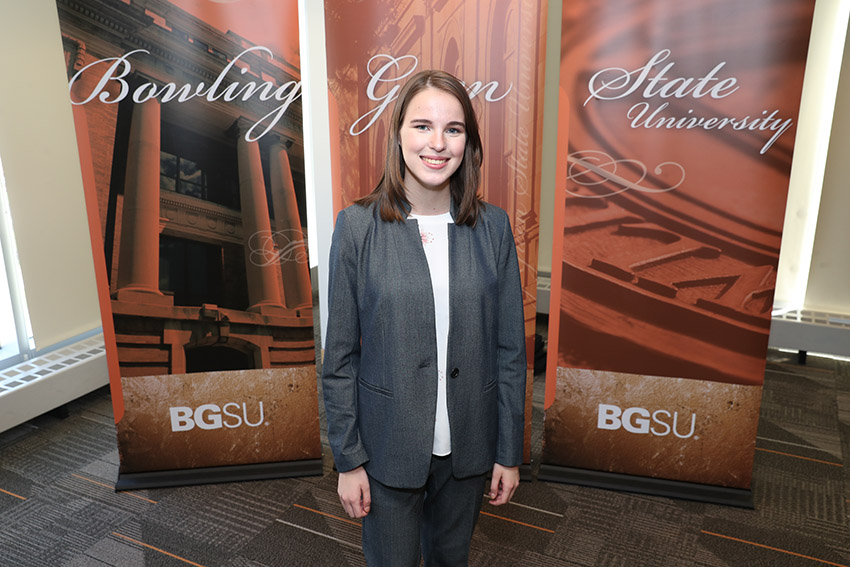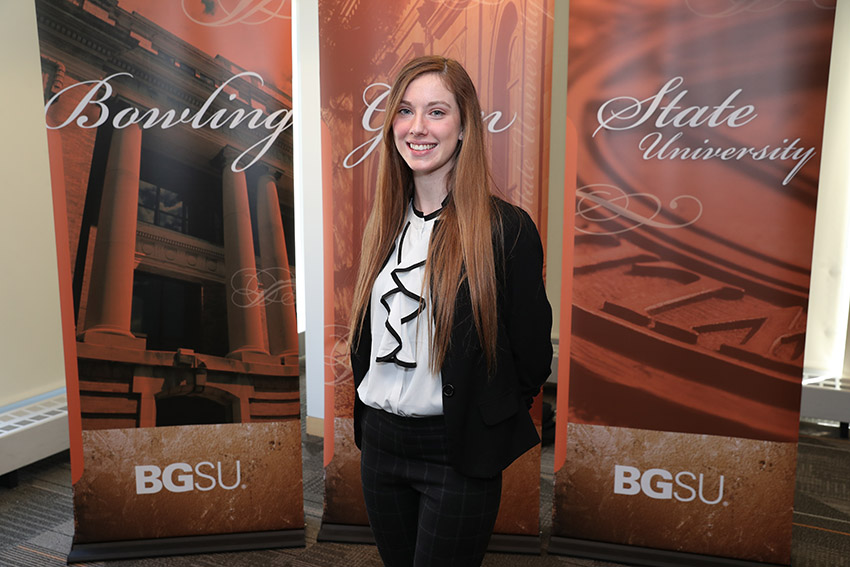2018-19 Recipients

Hannah Finnerty is a multi-platform journalism major with an interdisciplinary minor focused on the Middle East. A junior now, Hannah spent last summer working with a refugee NGO in Cairo; and, she returned to Bowling Green to serve as editor-in-chief of the BG News. She will spend her senior year in Meknes, Morocco, continuing her study of Arabic and Middle Eastern studies. All of this will come together in her Hoskins project, which will take her to Cairo in the summer of 2019 to intern with NPR at its Middle Eastern bureau. Her Hoskins mentor is journalism professor Dr. Catherine Cassara.

Quinn Eberhard is a freshman chemistry major who started attending the weekly research group meetings of the BGSU RNA Structural Bioinformatics group in the Fall of 2017. She immediately got to work on a project using her computer and statistical analysis skills from high school. This involved collecting and analyzing ribosomal protein sequences to test hypotheses regarding the amino acid composition of mitochondrial vs. cytoplasmic ribosomes of various mammalian species, including humans, in comparison to those of bacteria and yeast. The goal is to determine whether there is a statistically valid difference in amino acid composition, reflecting the highly oxidizing environment inside mammalian mitochondria, consistent with the large changes we have observed in the nucleotide composition of the ribosomal RNAs. Next, she will build homology models of ribosomal proteins to determine how the redox active amino acids (Tyrosine, Tryptophan, and Cysteine) are distributed in the ribosome to test hypotheses about how mitochondria protect the easily oxidized Guanosine bases of the RNA from oxidation. Her Hoskins mentor is chemistry professor, Dr. Neocles Leontis.

McKenzie Moss is a dual major in Spanish and Forensic Science; a very interesting combination that bridges the gap between the humanities and sciences through the exploration of Inca culture and medicinal practices in Perú and Ecuador. Thanks to the Hoskins Global Programs scholarship, McKenzie will be able to travel to South America to create both a record of plants (where they are found, how they are used), and create an online “story and word dictionary” of Quechua, the ancient language of the Incas. The idea of McKenzie collecting and mapping native plants and their Quechua denomination is far from simple. Given her background in forensic sciences, McKenzie knows about classification and denomination of foreign resources, such as plants. During an independent study, she came to realize how mainstream categorization systems have not always valued or incorporated the knowledge of marginalized people, such as indigenous peoples in South America, that she will be interviewing.
Through oral histories, McKenzie will be trying to document the value of medicinal plants, on the fringe of extinction, but from the indigenous people’s perspective. Her goal is to understand their importance in a specific cultural context. Her Hoskins mentor is world languages and cultures associate professor, Dr. Pedro Porben.
Updated: 09/03/2019 02:12PM
